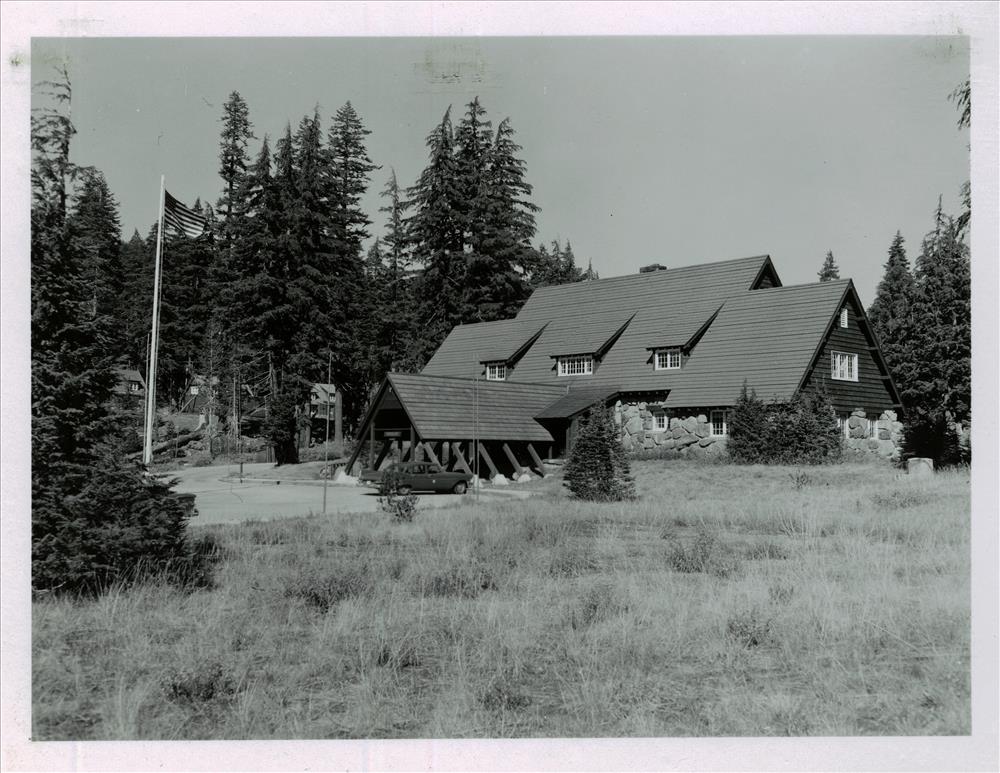Did you slide any boats to the lake?
We slid a boat. The rangers acquired a fiberglass boat, and we slid it down onto the lake while we were there. I’m not sure just what year this was, but it might have been about 1960. So we had the big wooden boat which was used for research and by the naturalists. I remember taking it out and putting it to bed each fall. And then the rangers had an outboard fiberglass boat, and getting it down was quite a little project.
Did the concessions operations change very much during the time you were there?
No, they did not.
Were there conflicts with Peyton?
Right. There were some conflicts between the concessioner and the park, and I suppose I had quite a lot of conflict with Ralph Peyton.
You’re not the first person to have mentioned that!
Barbara: He wanted to do things that Bruce didn’t.
He wanted to do things that didn’t seem right. And he was very definitely a businessman wanting to make money. And I could see what he was doing was asking for a lot more than a concessioner could expect to get. It’s like wanting a piece of the cake, and you happen to get a piece, and then you’re not satisfied, so you go back and get another piece, and that seemed to be what he was doing. And he was certainly doing what he saw as the right thing as a businessman, but it was often in conflict with maintenance and park standards.
Where did he house his employees?
Upstairs in the lodge, a terrible firetrap at that time. I think this is when Jack Broadbent was still there. The state fire marshal, of course, you realize he had no jurisdiction over this park, who informally said, if he had authority he would have closed the lodge down. So it seemed to me the park superintendent was really out on a limb by letting it continue to operate as a fire trap because if anything had happened and people had gotten burned, this would have surely of come out. Park superintendents are expendable when something like that happens; they’re very often the ones that take the rap for it.


